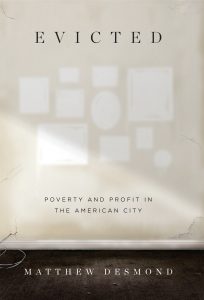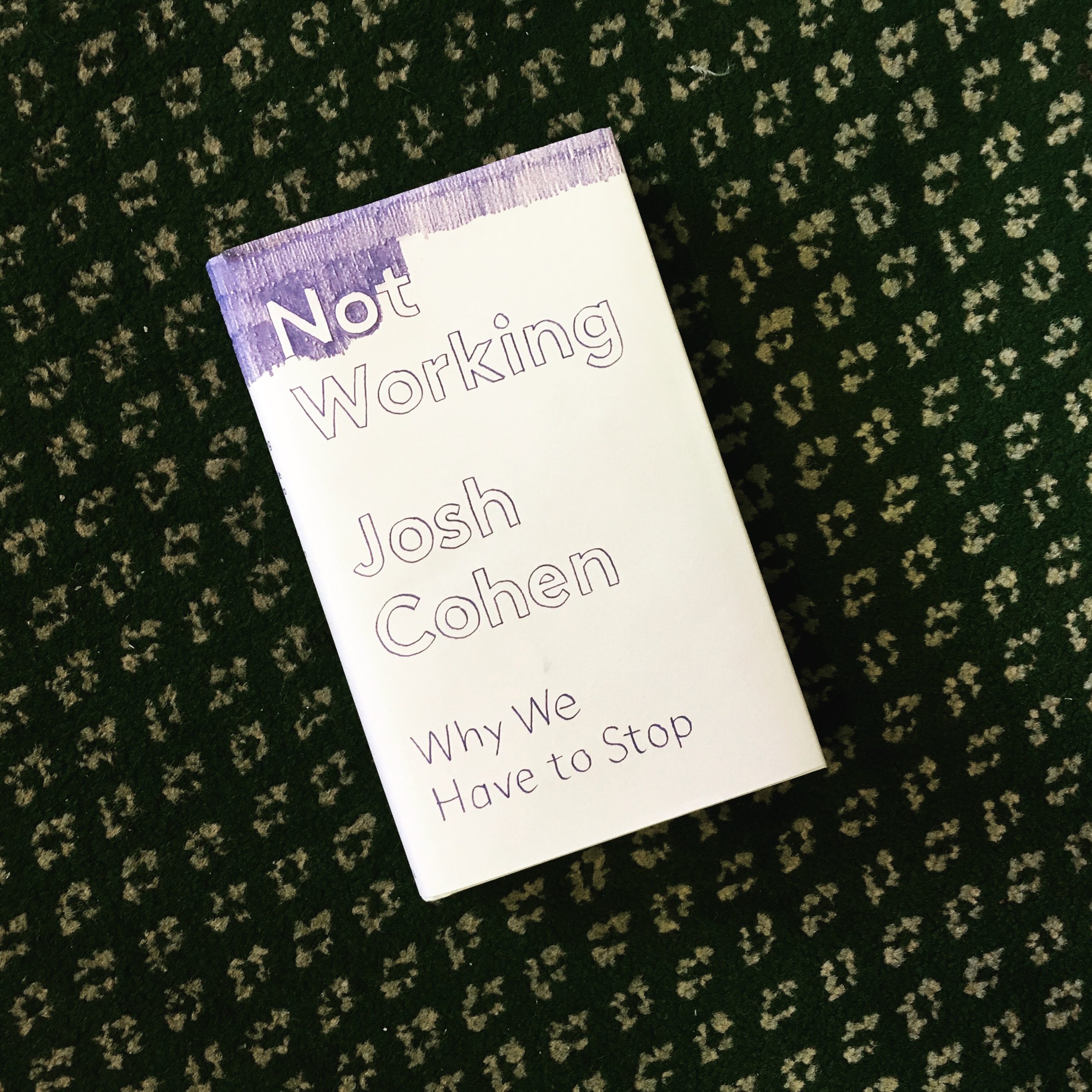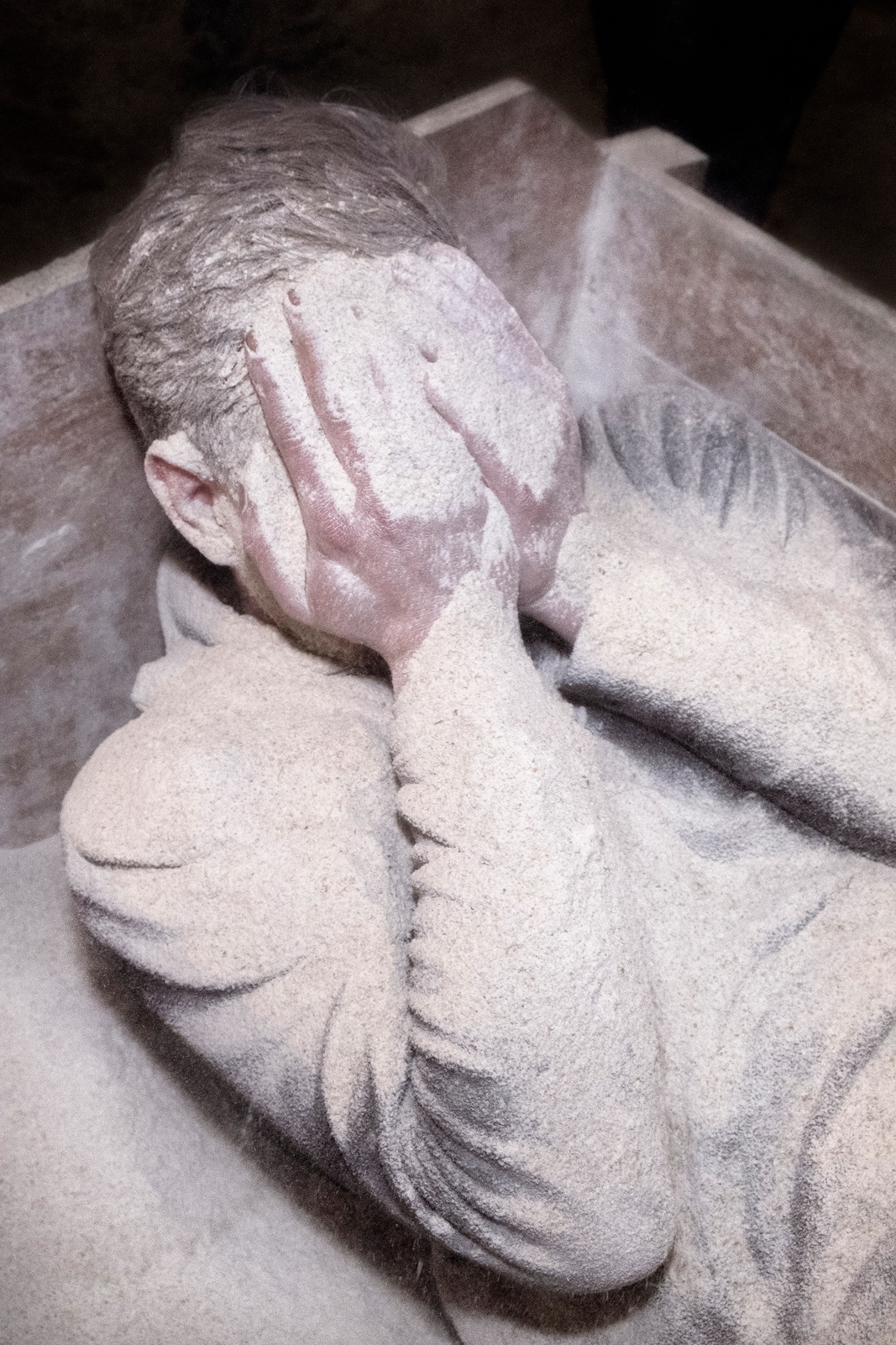Martin Kollár’s new book After is autobiographical, collecting images made for a project-in-progress with his partner, Mária Rumanová, who ended her own life in 2019, and editing them together anew.
Losing It All: An Interview with Matt Desmond
In his book Evicted: Poverty and Profit in the American City, Princeton sociologist Matthew Desmond reports on the contemporary American epidemic of evictions. His warning looms large: “Without a home everything else falls apart.” Told from the perspective of eight individuals being evicted in Milwaukee, Wisconsin, as well as their landlords, Desmond’s investigative book addresses the scope of the crisis through personal narratives. Desmond will be speaking about his work at the John Adams Institute in Amsterdam on July 4.
What is the relationship between poverty and housing?
Today, most home-renting families in America spend at least half of their income on housing, and about one in four spend over 70 percent of their income just on rent and utilities. We’ve had flat incomes, soaring housing costs and a failure of our federal government to bridge that gap. Under those conditions, you don’t really need to make a huge mistake to get evicted.
The burden of paying for housing is a direct cause of poverty, but so is eviction. It causes families not only to lose their homes, but everything. You lose your school and your neighborhood, you’re pushed into worse housing and into worse neighborhoods after you get evicted, and it impacts on your mental health, too. Your likelihood of holding a job is affected by eviction. All told, eviction it is not just a condition of poverty, it’s also a cause of poverty.
What makes housing such a linchpin to stability and the ability to keep afloat?
Without stable shelter, everything else falls apart. This is an insight that the Netherlands have taken very seriously throughout their modern history and it’s one that America has lagged behind on. Whatever the issue is that you care about, the lack of affordable housing sits at the root of that issue. If you care about school and stability, and kids not reaching their full potential in the classroom, you have to care about providing them with a stable place to live. If you care about reducing healthcare costs, then you should know that the top five percent of hospital users – the super-users who consume fifty percent of the costs in America – are folks whose unstable housing and medical conditions feed into each other. If you care about giving communities stability and a chance to keep themselves safe and produce a civic life, then housing is a big part of that story as well.
Housing is a fundamental issue in our life, certainly for low-income Americans. When families who have been on the waiting list for years finally get subsidized housing, which allows them to spend thirty percent of their income on housing instead of sixty or seventy percent, they do one consistent thing with that money: take it to the grocery store. Many of our families and kids aren’t getting enough to eat, because the rent eats first.
Why do you suppose the U.S. has lagged so far behind, considering the mantra of being one of “the wealthiest nations on Earth”?
We have made priorities about how to spend public dollars when it comes to housing, which can be summed up like this: we give the most help to families that need it the least and no help to most families that need it the most. And so, we are unique among advanced democracies for the amount of money we spend on homeowner tax subsidies. We spend more than $100 billion a year on homeowner tax subsidies, but only about $40 billion a year on direct housing assistance to the needy. Most of our tax subsidies go to families with six-figure incomes, because the biggest subsidy is a deduction on your mortgage, and you can take that up to $750,000 now—the bigger the mortgage, the bigger the deduction.
Most white families in America own their home and are eligible for this sweet deal, this lucrative cut-out in the tax code. Most Latino and black families don’t own their home, and so are left out of this bargain, because of our history of racial discrimination. That’s our policy priority, and Americans should be honest about that, and stop repeating this canard that the richest country on the planet can’t afford to do more.
It reminds me of the Ronald Wright quote about America’s poverty-reinforcing delusion: “Socialism never took root in America because the poor see themselves not as an exploited proletariat but as temporarily embarrassed millionaires.”
I haven’t seen that quote, but I do think that it’s hard to step out of the story that the country tells about you, even if you’re on the receiving end of that story. No one is harder on the poor than the poor themselves. They would say, “I see all my mistakes,” or, “Look how I messed up.” Part of my work is to challenge that kind of sentiment, to say, “No, millions of people are facing this every day in the country. You’re not alone, you’re part of a bigger story, and it’s not a story that’s reducible to your own missteps.” That message has resonated directly with folks in the book, which I’m pleased about. I think that’s the number one thing a sociologist can do.
There’s also a gender component to evictions.
The face of the American eviction epidemic is moms with kids. You see this at any housing court around the country: there are a ton of kids running around and their moms chasing after them. In fact, the South Bronx housing court in New York City until very recently had a daycare inside of it because there were so many kids coming in. Low-income African-American women get evicted at incredibly high rates, mothers in particular. One in five black women reports being evicted at some point in her life in Milwaukee, compared to one in fifteen white women. That is a really troubling statistic. It means that black women are disproportionately bearing the brunt of the eviction crisis. So, what’s going on?
Kids are a big part of the story. We know that if you live with children, the chance of you getting an eviction judgment when you go to housing court actually triples, all else being equal. We’re seeing landlords line up behind the belief that they don’t want to work with children, and women are at a disadvantage as well. If I went to my landlord and said, “Hey, I know I’m behind on my rent, let me work it off,” that would mean giving me a hammer or a paintbrush, something like that. But if my wife went and said the same thing, that would have a totally different connotation. That matters, with respect to how people can negotiate to stay in their homes.
You mention too that one of the aspects that’s perpetuating the housing crisis is that there’s a certain amount of profitability in evictions. How does that add up?
We’ve now looked at profit rates for landlords across America, and we’ve asked: Do landlords who own housing in poor neighborhoods make more money? The answer is a resounding yes. That’s not true in America’s hottest markets, like D.C. or New York or San Francisco, where the pattern is reversed, but if you’re anywhere else in the country, it’s much better to be a landlord in a poor neighborhood than a well-to-do neighborhood.
The mortgage payments and the property taxes of poor neighborhoods are a lot lower than in better-off neighborhoods, but rent isn’t that much lower. Rent in many cities across America is very compressed; there’s not a lot separating the cheapest units from the most expensive ones. So, landlords in poor neighborhoods basically have lower costs, but charge the same rent, so they reap larger profits.
One idea that seemingly justifies this is that landlords of poor neighborhoods incur more risk: they operate with older property stock, they face non-payment more, so maybe what they’re doing is up-pricing their units to offset risk. But, because that risk is still absolutely rare, most of that risk charge is passed on to all tenants and just recouped as extra profits. So, it’s kind of like tenants are paying into an insurance pool but not getting any benefits of the insurance. So, as a policy implication, you could think of products that actually function as an insurance pool that allows tenants to have something to fall back on should something go downhill.
Since the problems are so systematic beyond the individuals, what do you think is the way out?
There’s a lot of hope. One of the privileges about going around the country and talking about the book is meeting people doing amazing things to drive down family homelessness and fight evictions. I’ve been to places like Seattle, Washington and Lawrence, Kansas—cities that are very different from one another in every conceivable way—but which have both learned how to raise their own revenue to invest in affordable housing. In Cleveland, Ohio, they’ve got a housing court that works like an institution of justice, not an eviction processing plant, where people’s needs and underlying reasons for being evicted are addressed.
I also take a lot of heart in the fact that there are broad constituencies coming to the table on this issue that we haven’t seen before: the healthcare sector, public sector unions, corporations that are having a hard time having a stable job force recruiting workers to high cost areas, and police, too, since we know that neighborhoods with more evictions have more crime the following year. That’s encouraging. The problem though has to be solved in a way that matters for the unlucky majority of Americans who don’t receive any help for the government, and that means we need a significant investment from Washington. We haven’t seen one forthcoming in this administration, and we didn’t see one forthcoming under the last administration.
What is the most important thing for people to understand about eviction?
I want them to remember Arleen and her sons Jori and Jafaris. I want them to remember Scott and Larraine and Vanetta. For American readers, it’s important to know that somewhere in their city, someone has been evicted that day and their stuff has been piled on the sidewalk. If we don’t recognize the human costs of this wreckage, then all the other arguments won’t resonate. We really do need to get back in touch with the trauma we’re inducing by tolerating so much homelessness and the denial of home to so many Americans.
 An edited version of this interview with Matthew Desmond was published with the John Adams Institute in advance of the talk that Desmond will give on July 4 at De Balie. After his talk, he will have a conversation with moderator Tracy Metz, Cody Hochstenbach, a postdoctoral researcher in urban geography at the University of Amsterdam, and Dutch journalist Arjen van Veelen, who wrote about his experiences living in the city of St Louis during the Ferguson riots and unrest.
An edited version of this interview with Matthew Desmond was published with the John Adams Institute in advance of the talk that Desmond will give on July 4 at De Balie. After his talk, he will have a conversation with moderator Tracy Metz, Cody Hochstenbach, a postdoctoral researcher in urban geography at the University of Amsterdam, and Dutch journalist Arjen van Veelen, who wrote about his experiences living in the city of St Louis during the Ferguson riots and unrest.



